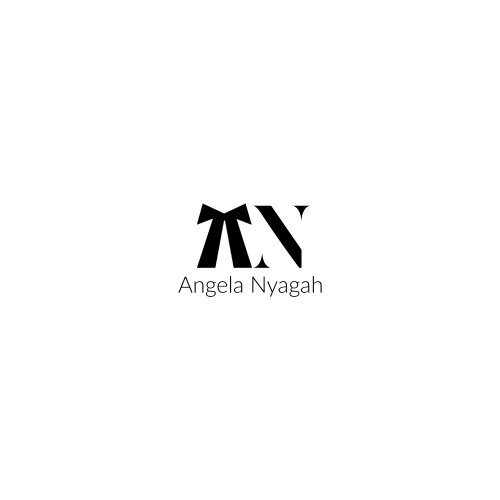Best Landlord & Tenant Lawyers in Chuka
Share your needs with us, get contacted by law firms.
Free. Takes 2 min.
Free Guide to Hiring a Real Estate Lawyer
List of the best lawyers in Chuka, Kenya
About Landlord & Tenant Law in Chuka, Kenya
In Chuka, Kenya, the relationship between landlords and tenants is governed by a combination of statutory laws and customary practices. Generally, these laws are designed to create a balance by protecting the rights of both parties involved in a tenancy agreement. The Residential Tenancies Act and the Landlord and Tenant (Shops, Hotels, and Catering Establishments) Act are particularly important in this context. These laws pertain to both residential and commercial tenancies, addressing issues like rent control, eviction procedures, and tenants’ rights to quiet enjoyment of the property.
Why You May Need a Lawyer
Engaging a lawyer can be beneficial in several situations related to landlord and tenant matters in Chuka. Some common scenarios include:
- Disputes over lease agreements, such as unclear terms or conditions.
- Eviction processes that require legal guidance to ensure compliance with the law.
- Instances of unlawful rent increases or demand for repairs not covered in the tenancy agreement.
- Claims of property damage by the tenant or breaches of lease by the landlord.
- Resolving misunderstandings in shared tenancy agreements or subletting arrangements.
- Assistance with recovering unpaid rent or security deposits.
- Protection of tenant rights under local housing laws.
Local Laws Overview
The laws in Chuka, as implemented under Kenyan legislation, focus on ensuring fair practice between landlords and tenants. Key legal provisions include:
- Rent Control: Rent increases must adhere to legal frameworks that ensure affordability and fairness.
- Eviction Procedures: Legal eviction requires court proceedings to ensure tenants receive due process.
- Maintenance and Repairs: Landlords are typically responsible for keeping the property habitable unless otherwise agreed upon in the lease.
- Security of Tenure: Tenants have the right to occupy the premises peacefully without undue interference.
- Lease Agreements: Terms must be clear and legally binding to avoid future disputes.
Frequently Asked Questions
What is a tenancy agreement?
A tenancy agreement is a legal contract between a landlord and a tenant outlining the terms and conditions under which the tenant occupies a property.
How is rent determined?
Rent is determined based on market rates, but any increment must comply with the regulations provided under Kenyan law concerning rent control.
Can a landlord enter the tenant's property without permission?
No, landlords must provide notice and obtain the tenant's consent, except in emergencies, to enter the property.
What should I do if my landlord refuses to make necessary repairs?
Tenants should formally request repairs, and if refused, legal action can be taken either for compliance or compensation.
What are my rights if I receive an eviction notice?
Tenants who receive eviction notices should seek legal advice immediately since eviction must follow the legal process and only be conducted with a court order.
When can a tenant legally withhold rent?
Withholding rent is generally not advised, as it can lead to legal action by the landlord. Legal counsel should be sought for disputes concerning the habitability of the premises.
Can a tenant sublease the property?
Subleasing is typically not allowed unless expressly permitted in the tenancy agreement or consented by the landlord.
How can disputes between tenants and landlords be resolved?
Disputes can be resolved through negotiation, mediation, or legal proceedings if necessary.
What is the procedure for increasing rent?
Landlords must provide a stipulated notice period for rent increases, which should be in compliance with the local rent control parameters.
Can a landlord cut off utilities to evict a tenant?
No, cutting off utilities to force an eviction is illegal. Legal eviction processes must be followed through the courts.
Additional Resources
For those seeking more information or assistance, the following bodies can provide support:
- Kenya National Commission on Human Rights
- The Judiciary of Kenya
- Local legal aid clinics in Chuka
- The Landlords and Tenants Association of Kenya
Next Steps
If you require legal assistance for landlord and tenant issues in Chuka, it is advisable to:
- Gather all relevant documents, including the tenancy agreement and correspondences with the landlord or tenant.
- Consult with a qualified lawyer who specializes in landlord and tenant law.
- Consider contacting local legal aid services for guidance if financial constraints are a concern.
Acting promptly and within the legal framework is essential to protect your rights and interests.
Lawzana helps you find the best lawyers and law firms in Chuka through a curated and pre-screened list of qualified legal professionals. Our platform offers rankings and detailed profiles of attorneys and law firms, allowing you to compare based on practice areas, including Landlord & Tenant, experience, and client feedback.
Each profile includes a description of the firm's areas of practice, client reviews, team members and partners, year of establishment, spoken languages, office locations, contact information, social media presence, and any published articles or resources. Most firms on our platform speak English and are experienced in both local and international legal matters.
Get a quote from top-rated law firms in Chuka, Kenya — quickly, securely, and without unnecessary hassle.
Disclaimer:
The information provided on this page is for general informational purposes only and does not constitute legal advice. While we strive to ensure the accuracy and relevance of the content, legal information may change over time, and interpretations of the law can vary. You should always consult with a qualified legal professional for advice specific to your situation.
We disclaim all liability for actions taken or not taken based on the content of this page. If you believe any information is incorrect or outdated, please contact us, and we will review and update it where appropriate.








